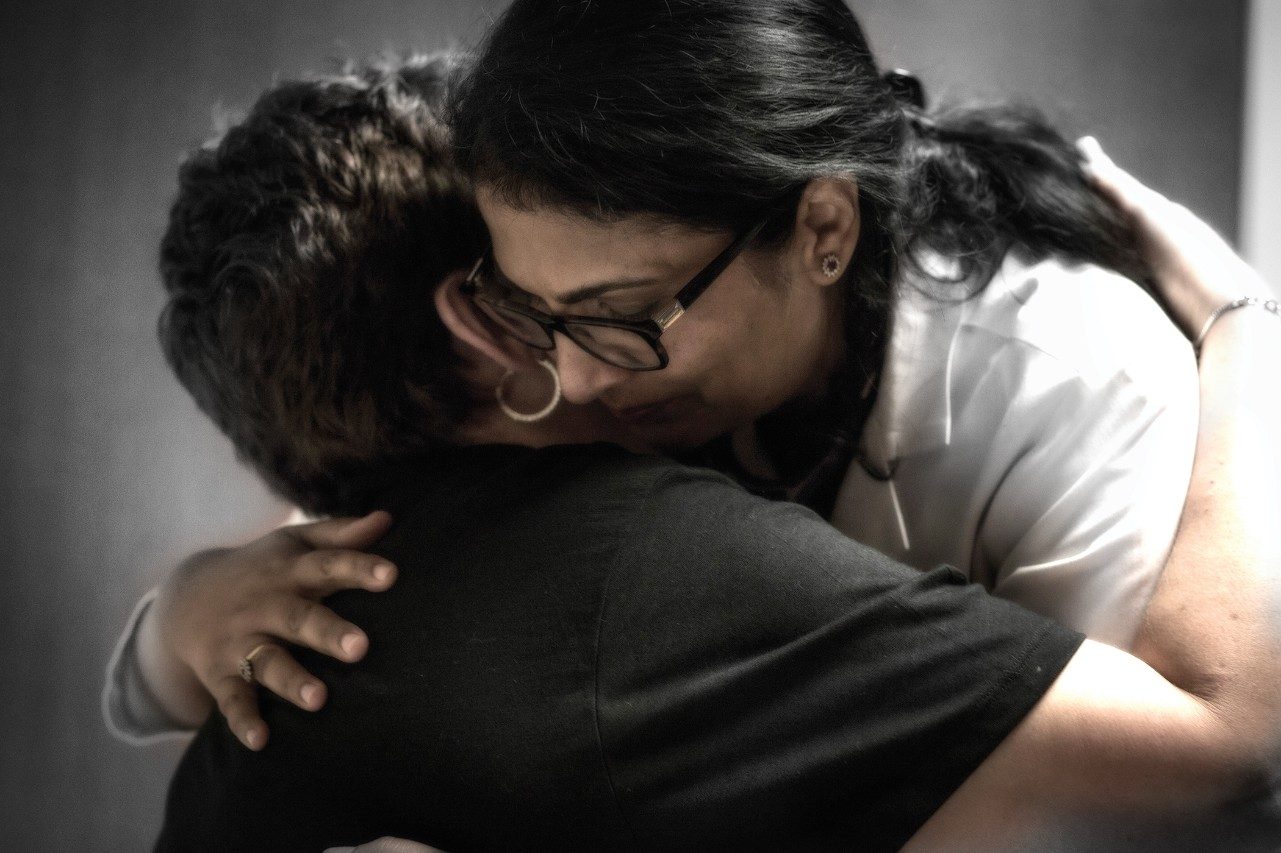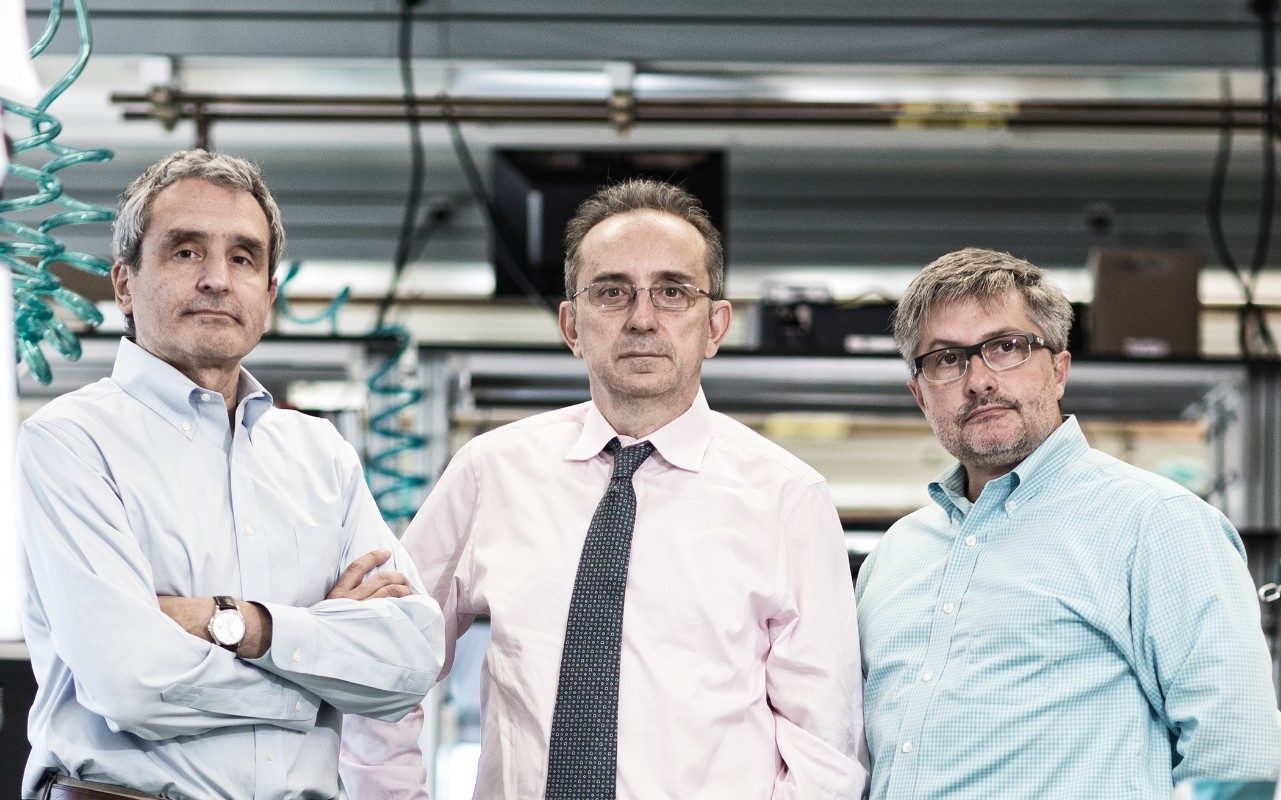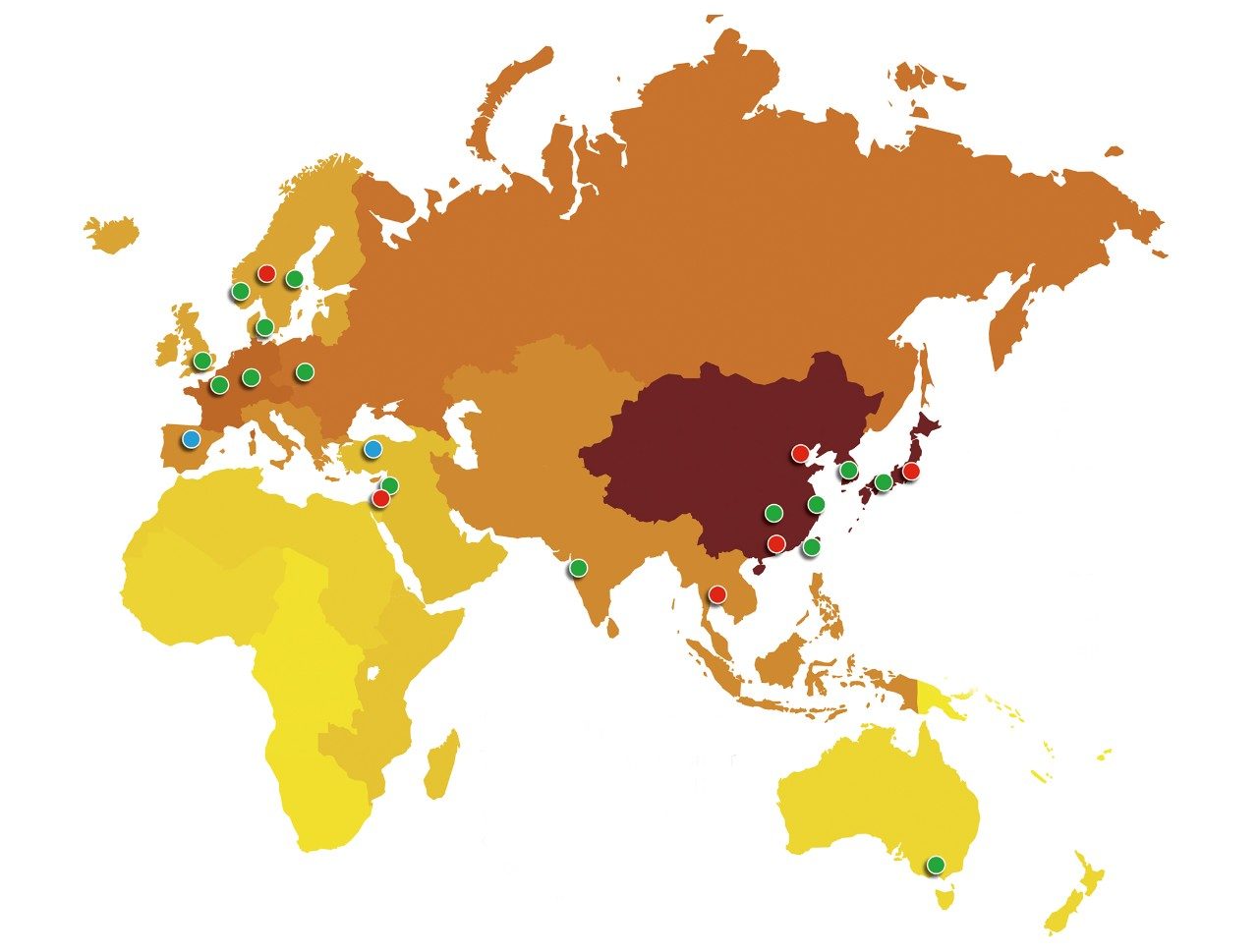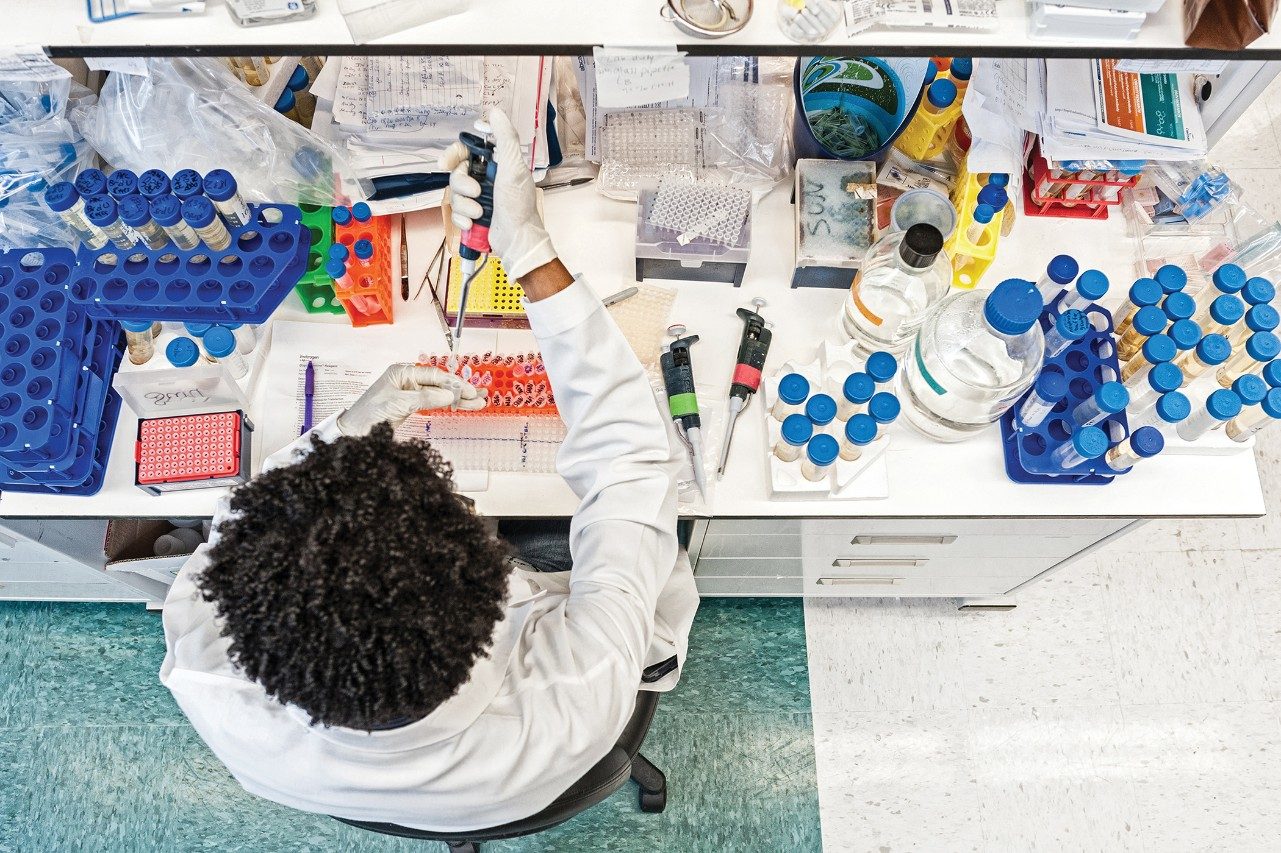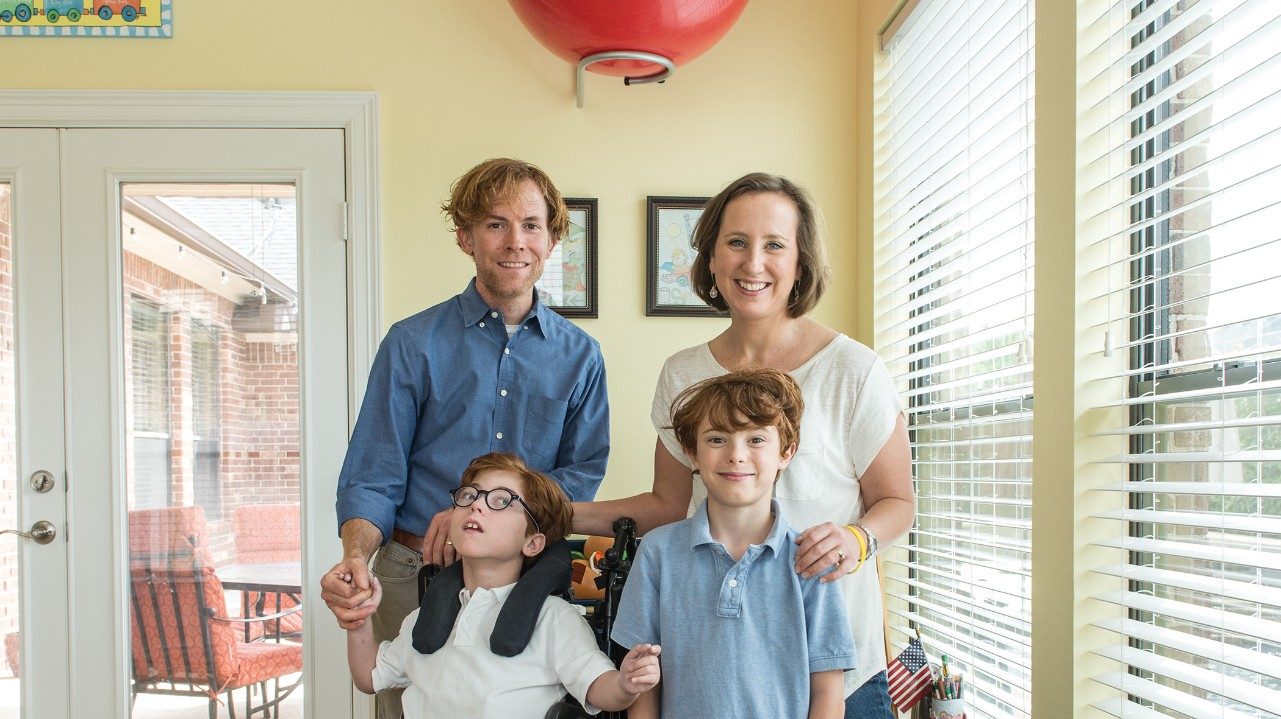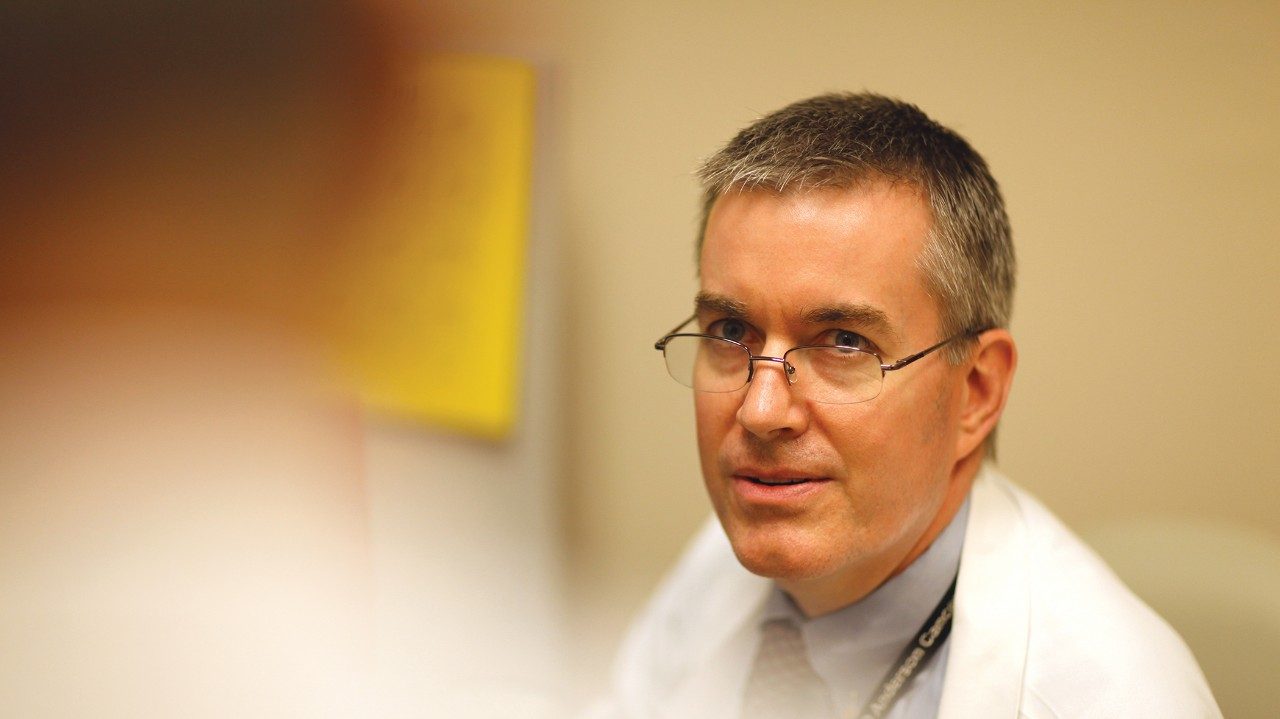On track for success
Mentors’ guidance is invaluable for young scientists and clinicians
“I am not a teacher, but an awakener.”
With that line, poet Robert Frost captured the essence of what it means to be a good mentor, a key to success for young physicians and researchers new to the world of academic medicine.
New scientists and clinicians rely on the guidance and wisdom of their more senior colleagues as they “awaken” their own inspirations and abilities. The end result? More informed caregivers, teachers and scientists who can better help
MD Anderson’s patients, educate future cancer specialists and spur next-generation innovations in cancer treatment.
“I had terrific mentors as a student, as a postdoctoral fellow and as a fellow at the National Institutes of Health,” says Sharon Dent, Ph.D., chair of Epigenetics and Molecular Carcinogenesis atMD Anderson. “They provided me opportunities to meet leaders in the field and to present my research findings at conferences. They also gave me very practical advice.”
Dent recalls her NIH mentor advising her to look carefully at faculty members who worked in institutions where she was applying for jobs.
“He knew they would influence my thinking, my students’ thinking and my opportunities going forward,” says Dent. “He was absolutely right.”
Helping to change careers … and lives
The department of Faculty and Academic Development’s raison d’être is helping junior faculty succeed personally and professionally.
To promote collegiality among faculty, trainees and students, the department hosts social gatherings and offers exercise programs, stress reduction programs, and counseling and advising. To help develop participants professionally, it offers workshops that teach grant writing, lab management, teaching skills and how to plan for promotion and tenure.
“The testimonials from faculty who have benefited from good training and mentoring are inspirational and heart-warming,” says Janis Yadiny, associate vice president for Faculty and Academic Development. “That’s why we offer mentoring materials on our website and events that support mentors and mentees. We also support faculty members establishing new programs in their departments and divisions.”
The department sponsored the first Faculty Mentoring Day in 2008, and annually selects winners of the Distinguished Faculty Mentor Award. Last year, recipients included Michael Keating, M.B.B.S., professor ofLeukemia, Elizabeth Grimm, Ph.D., professor ofMelanoma Medical Oncology, and Gordon Mills, M.D., Ph.D., chair ofSystems Biology.
Sharing the passion
Han Liang, Ph.D., associate professor ofBioinformatics and Computational Biology, says he was “tremendously impacted” by Mills’ mentoring.
“I joined MD Anderson with little knowledge or training about cancer research,” says Liang. “Gordon’s passion about helping our patients through science, his creative thinking about big ideas, his unconditional support for junior faculty and trainees, and his high standard for scientific research are amazing.”
Liang says he feels “extremely lucky” to work with Mills.
“I’m trying my best to adopt his characteristics and, hopefully, pass on these traits to my trainees,” he says. “Without Gordon’s support, I wouldn’t have achieved half of what I’ve been able to accomplish.”
Today, Liang is a talented scientist and mentor.
“The most enjoyable thing about research,” he says, “is working with trainees and discussing science daily.”
Keeping it simple
One mentor, George Calin, M.D., Ph.D., professor ofExperimental Therapeutics, adheres to a basic but time-honored approach.
“The simplest philosophy is to keep pushing my trainees to think outside the box, ask them to think and write science all the time, and let them prove to themselves just how good they are,” Calin says.
Creativity, imagination and the “desire to discover” are traits he cultivates in his mentees. Calin recalls his own experiences as a young scientist.
“我有机会有三个导师在罗依mania, Italy and the United States,” he says. “They contributed fundamentally to my way of understanding science and making discoveries.”
Mien-Chie Hung, Ph.D., chair ofMolecular and Cellular Oncology, mirrors Calin’s experience with his mentors.
“I’ve been very lucky to have some great and inspiring mentors throughout my career,” says Hung. “As a naïve young man in Taiwan interested in science, two mentors in particular really opened my eyes to the powers of modern science. They turned on my curiosity and passion.”
Hung says he learned from his mentors how to be happy and successful and to follow his heart. Today, he looks for that same passion, commitment and innovation, along with a solid track record, to ensure his mentees will succeed. His advice to young faculty is to be persistent.
“A career in science will have many ups and downs,” he says. “It’s important to always get right back up.”

